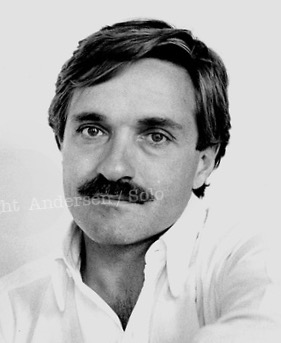The Sex Offender
by Matthew Stadler
Published by HarperCollins Canada
Published September 1994
Harper Perennial US edition: August 10, 1995
Grove Press reprint edition: May 3, 2000
Fiction
224 pgs. • Find on Amazon.com
The Little Rogue in Our Flesh
by Yves Navarre
Published by Quartet Books, London
Translated by Donald Watson
First published in France, 1977
Published by Quartet Books, London, 1989
Texas Bookman ed. published March 1996
Fiction
184 pgs. • Find on Amazon.com
Reviewed by Stephen O. Murray
August 17, 1997.
I don’t know quite what to make of Stadler’s third novel, The Sex Offender. Is it protest literature? Satire? A parody or a tribute to Nabokov? (If I could remember Nabokov’s view of Kafka, I’d probably be able to decide…)
It has imaginative premises (a few too many of them, perhaps) and some fine writing, and it is occasionally funny. But it seems that a totalitarian order would be better at keeping tabs on Mr. Uh-Huh’s nocturnal occupations (plastic surgeon: how could he be competent with no training?)
It seems to me that Stadler can’t make up his mind about whether the Doctor General is going to be a sympathetic character. The cooptation of the purely formal opposition (the rebels) is mordant enough and the subversion of behavior modification is amusing, at least initially, but has nowhere to go.
The Sex Offender is an ambitious failure I think, but disappointing after the very compelling creation of a past in Landscape:Memory. That both celebrate the sexuality of adolescents (intragenerational in the first novel, intergenerational in this third one) is hard to miss. Love can never be wrong is the subtext of both.

In contrast, I almost quit reading Yves Navarre’s (1940-94) The Little Rogue in Our Flesh (Le petit galopin de nos corps, 1977). Too much rhapsodizing and too little development as Roland reconstructs his passionate union with the just-dead Joseph through documents Joseph too conveniently left in case he died first.
Once the title character inserts himself (literally) between them, Roland tells that story, and the later communiques strain my credulity less. All the true paradises may be lost ones, but my view is that when things are perfect they are not inscribed, so that either things were not perfect or the accumulation of documents for future elegy-making is psychologically untrue (I opt for the latter interpretation).
I didn’t believe that the character Max could have written what and as he did on the dates he did in Stadler’s Landscape: Memory, but somehow I felt that the sequence of what he thought and felt plausible.
Navarre imagines an inseparable adolescent pair in which both live beyond adolescence. Joseph and Roland marry sisters, so that they shared heterosexual/family life (each with a son and a daughter) with each other.

The setting is rural (but less pastoral than Max’s San Francisco or Bolinas). The memoir by the survivor of a male pair before AIDS does not differ appreciably from the AIDS memoir genre: mourning is mourning, and the survivor cannot imagine anyone else understanding his loss of his brother/lover. But perhaps the reader can? Roland has hopes that Clothilde (the official widow) will be able to. There is no explanation of who found Max’s journal.
Are my ideas about these books cloudy or is the fault in how I try to express them? The one I feel, that I resonate with is Landscape:Memory. Its past, though longer ago, is much more immediate to me than that in The Little Rogue in Our Flesh, though both authors seem to me to kill off characters somewhat gratuitously—especially Sando, who prefigures Martial. Like Duncan, he drowns. And he seems to drown not just suddenly (without warning) but perfunctorily, if that makes sense.
17 August 1997
©1997, 2016, Stephen O. Murray

